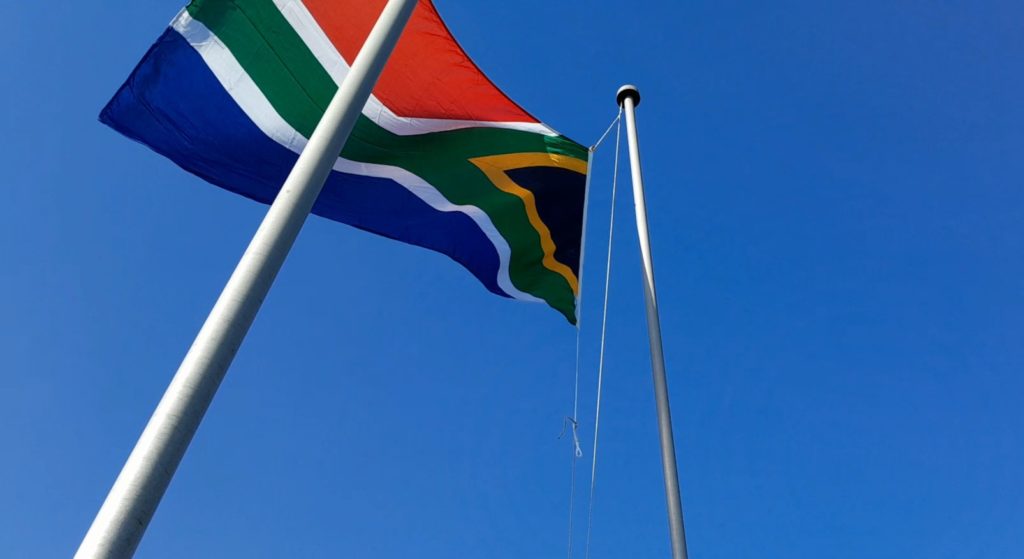By Nonhlanhla Mbonambi
South Africa currently has about 178 000 immigrants holding Zimbabwean Exemption Permits (ZEPs). This, after Home Affairs Minister Leon Schreiber issued a statement on the 7th of October 2025 to once again extend ZEPs to the 28th of May 2027. Leaving South Africans asking questions like, “Who truly benefits from these ZEP extensions? How does it affect South Africa and its citizens in the long term?”
Important to note, there is no war or any political unrest in Zimbabwe. If there were, this extension could be considered a valid reason for the continuous extensions of ZEPs. However, that is not the case, then what valid reason does the government have for these permits? Also, why should South Africa continue accommodating immigrants without proper documentation?
The Home Affairs’ decision has created more harm than good for the country. What was introduced as a temporary solution has turned into a long-term excuse, influencing a continuous influx of immigrants. These extensions indicate that the immigration laws of South Africa are flexible, weakening border control and law enforcement. ZEP was supposed to come to an end this year in November, however it has since been extended. This comes after previous extensions.
According to South African immigration laws, ZEP protects immigrants from being arrested and deported from the country for lacking a valid exemption certificate. They can apply for provisional dispensation without needing a valid exemption. Holders of permits can continue to enter and exit South Africa, provided they meet other immigration requirements. They are also permitted to work, study, and run businesses. Lastly, they have access to basic services such as free healthcare and education.
South Africa is already crumbling under strained public health facilities and overcrowded government schools. Extending ZEPs without a proper plan further worsens these issues, as more illegal immigrants enter the country hoping for similar leniency. This places an unfair burden on the South African state , also contributing to the growing frustrations amongst citizens who feel neglected by their own government.
Instead of addressing the root causes and implementing a lawful immigration system, the government continues to fail this country by repeatedly choosing the easy way of extension. This approach undermines South African laws and fails to hold individuals accountable to immigration regulations.
Background of ZEP extensions
In 2023, the former Home Affairs Minister, Dr. Aaron Motsoaledi, issued new permits to approximately 233 000 existing ZEPs and Lesotho Permits Exemptions (LEPs) holders.
These permits were supposed to be valid until 29 November 2025. The former minister faced some legal action from civil society organisations challenging the decision to terminate the ZEP held by 178,000 immigrants by the end of 2023.
However, the Gauteng High Court in Pretoria had already extended the ZEP to 28 June 2024. The repeated decision by Home Affairs potentially affects the country’s economy, as the influx of foreign labour, often under less regulated conditions, increases competition for scarce job opportunities, especially in the informal trading sector. While certain companies benefit from cheap labour, ordinary South Africans continue to face stagnant wages and fewer job opportunities.
The government prioritises its political alliances and gains at the expense of struggling South Africans. Since Home Affairs continues with this pattern, it risks deepening social issues and diminishing trust in the state’s ability to govern fairly and effectively.
Who truly benefits from immigrants with ZEPs?
It seems as if immigrants have the power to do as they please, given the fact that they are protected by South African immigration laws. It is no surprise that the current Minister of Home Affairs, who is a member of the Democratic Alliance (DA), sees nothing wrong with the extension.
The DA and the Helen Suzman Foundation have made it clear where they stand as far as immigration issues in South Africa are concerned. They are aiming to legalise illegal immigrants in the country. The majority of DA members and voters are white capitalists, the upper and middle class, who indirectly benefit from continued extensions of ZEPs. Their companies and businesses allow thousands of Zimbabwean nationals to work legally, especially at fast food restaurants, on their farms, and as domestic workers, to gain access to cheap labour. Many employers prefer ZEP holders because they accept lower wages, exploitation without demanding benefits or strong labour protections.
This strategy maintains operational costs and generates high profits for companies, while side-lining unemployed South Africans who often demand fair minimum wages, which is why white-owned companies exploit this vulnerable labour force to maintain economic dominance.
The government’s leniency with ZEPs purely serves the capitalist’ interests, ensuring a steady flow of affordable labour while masking its true intentions as a humanitarian gesture to struggling African immigrants. Ultimately, ordinary citizens have to bear the burden through job scarcity and suppressed wages.
What could be deemed as potential reasons for continuous extensions?
While the government may hide behind the humanitarian approach, or how immigrants could potentially contribute to the economy back in their countries, or regional stability, as valid reasons for extending ZEPs, these justifications no longer hold up under current circumstances. Initially, ZEPs were supposed to provide temporary relief to Zimbabweans who may be affected by political or economic instability. However, these extensions have turned into a permanent policy that contributes to an uncontrollable influx of immigrants in South Africa.
These permits prove that immigration laws are negotiable, which creates more undocumented migration. South Africa is already dealing with numerous social issues with limited resources.
How can South Africans tackle the growing influx of immigrants?
While South Africans are often labelled as xenophobic by the media and lazy by immigrants when they are fighting for their rights and the laws of this country, what I believe is a contradiction is how the South African Human Rights Commission (SAHRC), the Constitution and National Health Act (NHA) fails its citizens when it emphasizes that there should be non-discriminatory access to healthcare. Healthcare professionals, ethics and human rights principles advise against reporting undocumented immigrants and stress the importance of patient confidentiality.
This means the Immigration Act is null and void. The doctors and nurses cannot report this criminal activity since they are bound by the law and their oaths. As much as it is considered ‘illegal’ to stop illegal immigrants from entering hospitals, it is, however, the role of civil society organisations to arrest them and also stand for their rights, protest against the government and laws this country has that keep failing its citizens.
Civil society organisations have a crucial role to play in addressing immigration lawlessness and challenging the continuous extension of ZEPs. For too long, the government has relied on temporary solutions instead of enforcing immigration laws constantly. They should use legal channels to hold the government accountable for failing to implement proper immigration procedures. Strategic legal action can put pressure on authorities to implement transparent policies rather than unlimited extensions. Advocate for campaigns that can raise public awareness about how these extensions potentially affect housing, opportunities, and public services. They can also pressure parliament and relevant government departments to develop fair immigration frameworks that protect national interests while respecting human rights.
Influx of immigrants in South Africa and its negative impact
The 2022 South African census revealed that over a million Zimbabweans are living in the country, meaning that only a fraction have ZEPs. This proves that the rest are in South Africa illegally, which further highlights the scale of the immigration crisis that has taken place over the years. While immigration is a natural phenomenon, South Africa is not a developed country and certainly cannot afford to continue accommodating immigrants, as extensions of ZEP have created more challenges.
It is also difficult to hold accountable and track immigrants who commit criminal acts such as selling government medications, theft and crime, as many of them are undocumented. Failure to enforce immigration regulations has effectively made South African laws were completely invalid and made a mockery of this country to other nations.
Nonhlanhla Mbonambi is a student at Durban University of Technology, studying towards the Bachelor of Journalism Honours degree. The views in this piece are expressed in her personal capacity.


